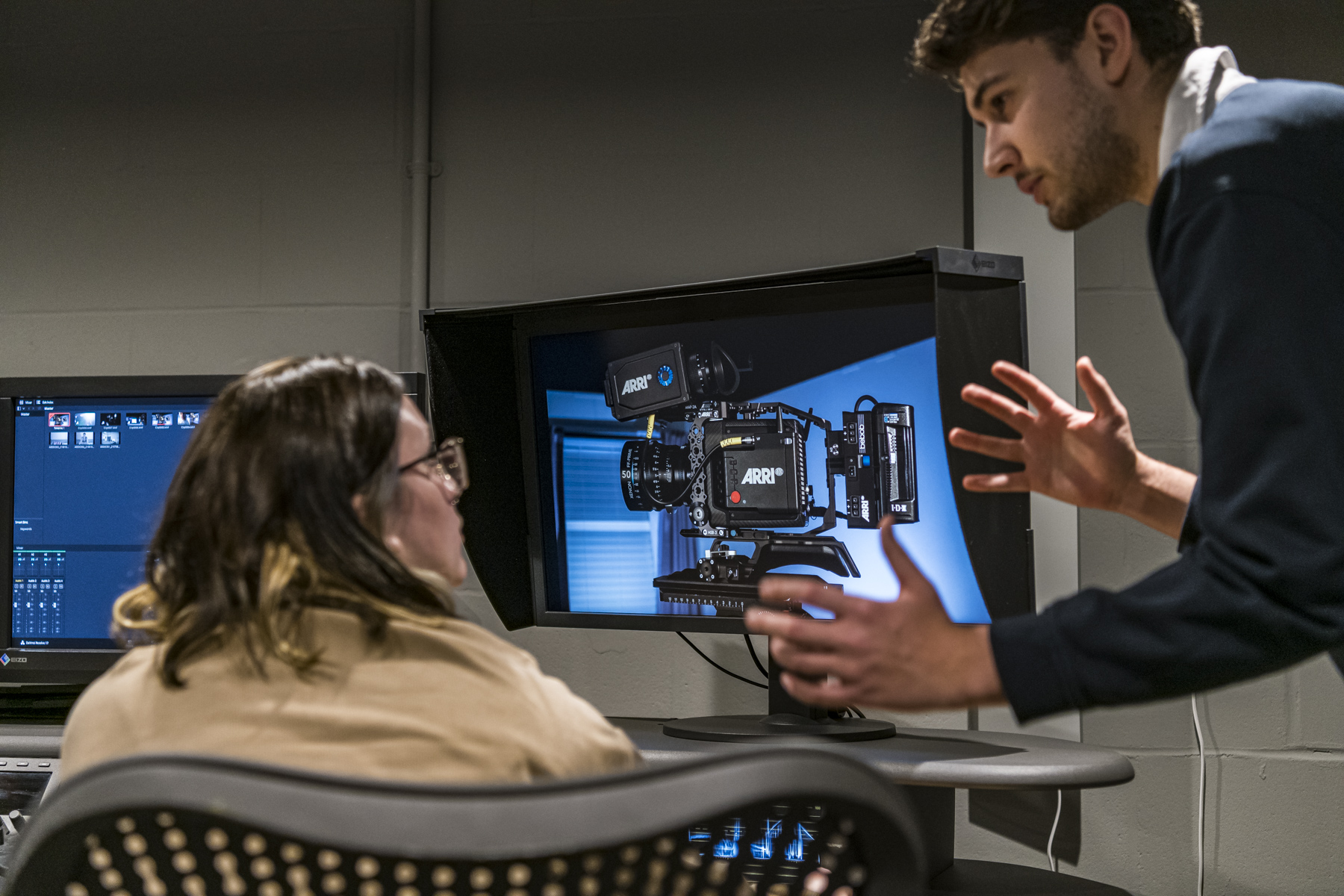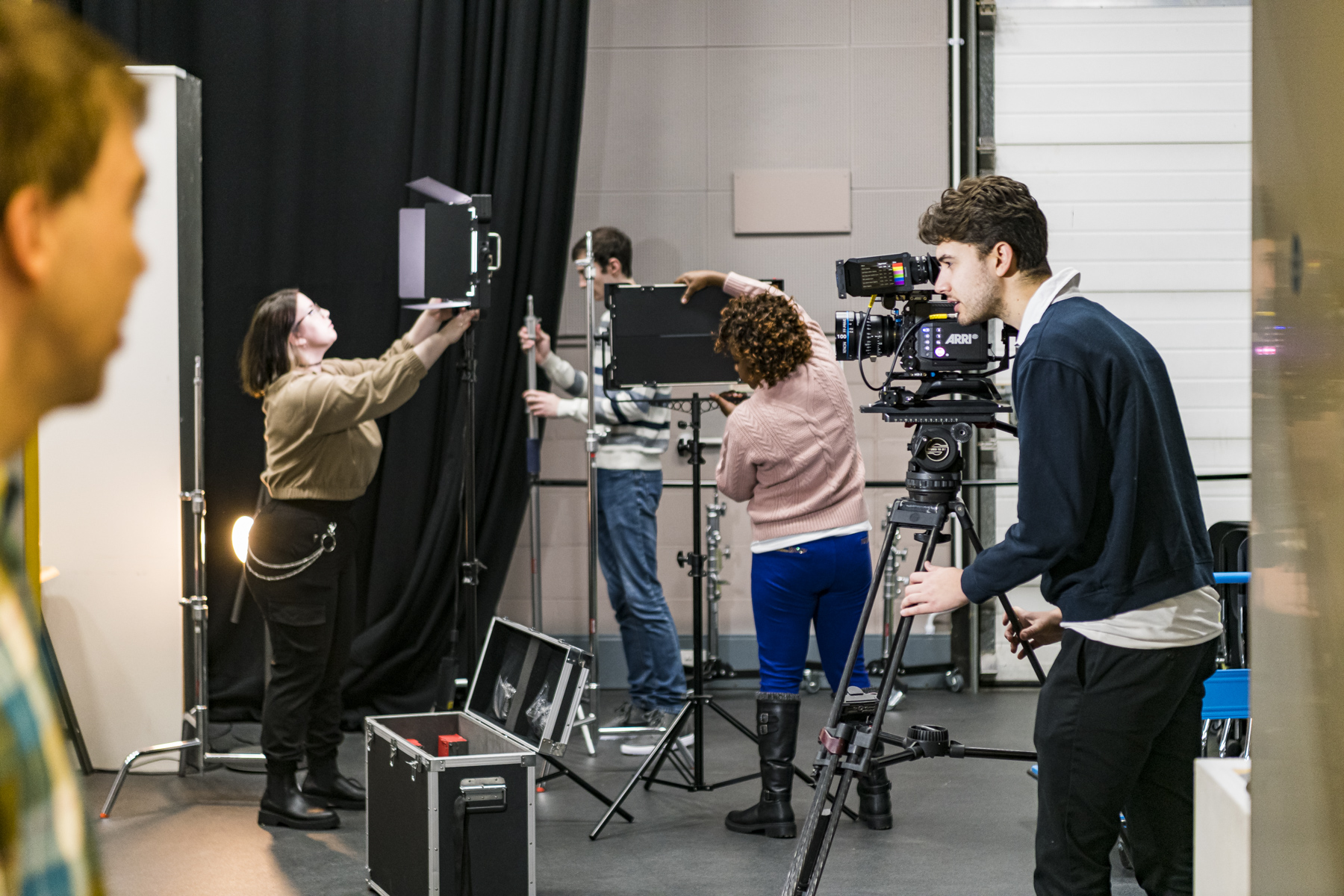Screenwriting Taster Sessions
Screenwriting Sessions
Generating and Developing Ideas for Screenplays and Short Films *
Professional writers need to constantly come up with new ideas. But where do those ideas come from? How can we ‘tame the muse’ to create something from nothing and how can we distinguish the good ideas from the not-so-good ones? This session explores methods for generating story ideas using a range of different creative prompts. Students will also learn how to develop and refine their initial ideas by asking a series of key dramaturgical questions.
Writing and Analysing Short Films
Short films can make excellent calling card pieces, but they can be deceptively tricky to write. This workshop looks at the narrative principles unique to the short film form. Students will begin by exploring what kinds of ideas particularly suit this form and learn how to handle quick setups, employ rising conflict and how to build to a satisfying (but not necessarily closed) climax… all in under ten minutes! Students will go away armed with a series of useful analytical tools to help them assess existing short films in order that they can potentially apply those principles to their own creative work.
Principles of Drama and Why We Tell Stories *
What key elements does an effective story require? This interactive session explores what makes a story ‘dramatic’ and what kinds of stories are especially suited to the screen. Students will learn about core underlying storytelling principles such as conflict, character motivation and development, stakes, change and movement. The session also provides a broader context by investigating the social, psychological and cultural functions of storytelling.

The Logline: Pitching Your Film or TV in a Sentence (or Two!) *
Professional writers need to be able to convey their story ideas concisely in order to hook an audience or to convince a producer, agent or broadcaster to read their work. This session introduces students to the concept of the ‘logline’ – a pitching tool used extensively in the film and TV industry. Students will learn about the difference between a ‘tag line’ and a logline, the three key components of a logline and how to distil a complex idea into a sentence or two. They will also explore principles of good practice by analysing the loglines of a number of famous films. At the end of the workshop, students will have the opportunity to try it out for themselves by either writing a logline for an existing film or pitching their own original idea to the group.
Screenplay Formatting: How to Write a Professional-Looking Script *
Film and TV executives can instantly tell whether a writer is a professional just by looking at the layout of their scripts. This session teaches students the basic principles of script formatting – how to set up a template (and which existing ones are worth using), where to put the different elements on the page, what goes into a scene heading / ‘slugline’, what to include (and not to include) in the action descriptions and how to present a script in a professional manner.
Film Structure: The Hidden Shape of the Feature Film
How are feature films constructed? Why is it that similar patterns tend to recur at the same points in most movies, no matter what the genre might be? This session introduces a simple narrative structure that underpins many mainstream feature-length films. Students will learn to break films into acts, sequences, scenes and beats. They will also apply a basic structural model such as Syd Field’s 3-act paradigm to a number of classic, award-winning feature films.

A Day in the Life of a Screenwriter
This session explores what it’s really like to work as a professional screenwriter in the film and TV industry. After dispelling some myths about screenwriting, students will learn about the key differences between writing as a hobby and writing as a career, the personal qualities that professional writers need to develop, how to use the neuroscience behind creativity to establish an effective writing routine, and all of the things that screenwriters do when they’re not actually writing!
[Delivered by a working screenwriter, this session may be of particular interest to English, Creative Writing or Media students.]
Giving and Receiving Story Feedback
Even the most talented writers find it hard to see the problems in their own work, therefore getting an objective opinion is vital. But how do we give feedback on someone else’s creative work without offending them and how can we respond to feedback without coming across as closed or defensive? This interactive session explores the principles of giving and receiving story feedback by analysing a series of light-hearted real-life examples. From these examples, students will compile a list of principles for giving and receiving effective story feedback which can be applied to scripts, prose or other forms of creative work.
We are also able to provide a selection of Film Studies-based taster sessions to suit your needs and curriculum. Please contact us at film@uos.ac.uk.
*Shorter sessions (can be combined with other asterisked sessions)